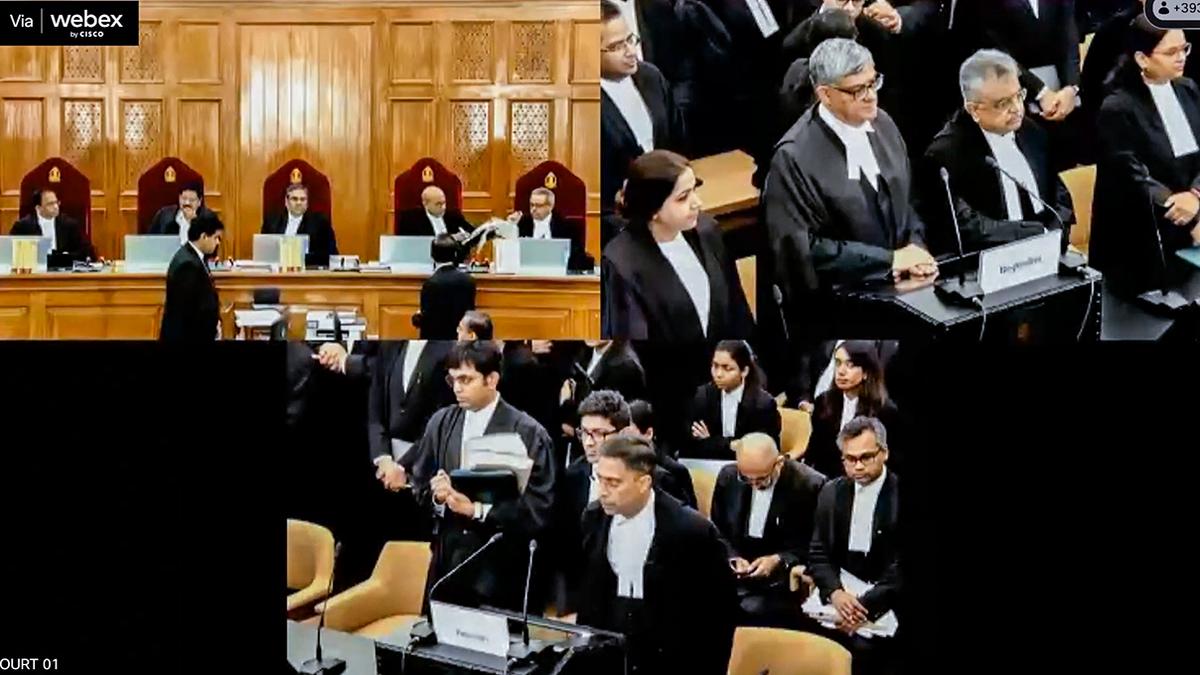
A five-judge Constitution Bench of the Supreme Court comprising Chief Justice Sanjiv Khanna and Justices B.R. Gavai, P.V. Sanjay Kumar, K.V. Viswanathan and Augustine George Masih during court proceedings, in New Delhi on Wednesday.
| Photo Credit: ANI
The Supreme Court, in a majority judgment, on Wednesday held that courts had the power to modify arbitral awards under limited circumstances.
Chief Justice of India Sanjiv Khanna, heading a five-judge Constitution Bench, authored the majority 4:1 opinion that courts were judicially empowered under Section 34 of the Arbitration and Conciliation Act, 1996 to alter arbitral awards on restricted grounds.
Modifications by a court were allowed to amputate the invalid portion of an award from its valid part or to get rid of obvious typographical, computational, clerical errors in the award or if the interest post the award needed to be changed.
“The scope of judicial intervention under Section 34 is confined to the limited grounds expressly provided. The court does not possess the power to correct errors of fact, reconsider costs or engage in a review of the merits of the arbitral award,” the majority judgment said.
Chief Justice Khanna held that the Supreme Court was however empowered to flex its inherent powers under Article 142 of the Constitution to do complete justice in case of an arbitral award. Nevertheless, the judgment cautioned that this power must be exercised with great care and caution and within the limits of the Constitutional power.
“As far as Article 142 of the Constitution is concerned, the exercise of this power has to be in consonance with the fundamental principles and objectives behind the 1996 Act and not in derogation or in suppression thereof,” Chief Justice Khanna noted.
In his dissenting opinion, Justice K. V. Viswanathan held that an arbitral award cannot be modified unless expressly permitted by the arbitration statute.
“While exercising power under Section 34 of the 1996 Act, and consequently, the courts in the appellate hierarchy do not have the power to modify an arbitral award,” Justice Viswanathan held.
Justice Viswanathan’s opinion mirrored that of the Centre, represented by Solicitor General Tushar Mehta, which had argued that the power to modify had to be statutorily conferred.
Lawyers who had argued against the court’s power to modify said this would result in court orders and decrees replacing arbitral awards.They said allowing courts to change arbitral awards would lead to international repercussions when awards are sought to be enforced under foreign conventions. “A court decree cannot substitute an arbitral award, especially when the award is examined under the limited jurisdiction of Section 34,” they had argued.
The minority opinion by Justice Viswanathan said Section 34 only dealt with “setting aside”, and not modifying, arbitral awards through court orders.
“The power to set aside will not include the power to modify since the power to modify is not a lesser power subsumed in the power to set aside,” Justice Viswanathan observed.
Section 34 allowed a party to approach a court to set aside an arbitral award for several reasons, including if the award was found to be against public policy or contrary to the fundamental policy of Indian law or induced by fraud or corruption or in conflict with the basic notions of morality and justice.
However, the majority judgment referred to the several instances when the apex court itself had been compelled to modify arbitral awards in order to minimise protracted litigation and foster the ends of justice. eom
Published – April 30, 2025 10:45 pm IST
Anurag Dhole is a seasoned journalist and content writer with a passion for delivering timely, accurate, and engaging stories. With over 8 years of experience in digital media, she covers a wide range of topics—from breaking news and politics to business insights and cultural trends. Jane's writing style blends clarity with depth, aiming to inform and inspire readers in a fast-paced media landscape. When she’s not chasing stories, she’s likely reading investigative features or exploring local cafés for her next writing spot.




